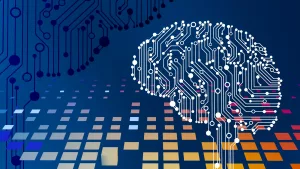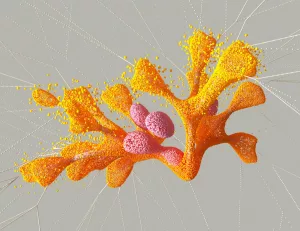Can a digital assistant truly capture the essence of poetry? This question has sparked a fascinating debate among literary aficionados and technology enthusiasts alike. With advances in artificial intelligence and natural language processing, digital assistants like Siri, Alexa, and Google Assistant are becoming increasingly proficient at understanding and generating human language. However, the nuances of poetry – its rhythm, meter, rhyme, and metaphorical language – pose a unique challenge for digital assistants. While they can analyze patterns and generate text based on data, the emotional depth and creativity that define poetry often elude algorithmic systems.
The Role of Creativity and Emotion in Poetry
Poetry is a form of artistic expression that transcends mere words on a page. It delves into the depths of human emotion, provoking thought and evoking feelings in ways that are deeply personal and subjective. Can a digital assistant, devoid of human experience and emotions, truly grasp the intricacies of poetic expression? While digital assistants excel at processing vast amounts of data and recognizing patterns, they lack the intuitive understanding and emotional intelligence that human poets bring to their craft. The ability to draw upon personal experiences, emotions, and cultural contexts is integral to the creation of meaningful poetry.
Consider a poem that reflects the sorrow of losing a loved one. A human poet might draw from their own grief, using metaphors and imagery that resonate with others who have experienced similar loss. A digital assistant, however, might generate a poem with correct structure but without the emotional resonance, missing the subtlety and depth that comes from lived experience.
Personal Experience as a Catalyst
Every poet has a unique reservoir of experiences that they draw upon, transforming personal history into universal themes. For instance, the poetry of Maya Angelou often reflects her experiences with racial discrimination and the strength she found in overcoming adversity. An AI can analyze the themes of her work but replicating the raw emotion and authenticity in her voice is a different challenge altogether.
Emotional Complexity in Poetry
Human emotions are complex and multifaceted, often overlapping and evolving with time. Poems capture this complexity, offering readers a glimpse into the poet’s psyche. A digital assistant might struggle to replicate this complexity because it doesn’t experience emotions or understand their nuance. It’s one thing to generate words that reflect sadness; it’s another to create an emotional journey that resonates deeply with readers.
The Limitations of Algorithmic Creativity
Artificial intelligence relies on algorithms and statistical models to generate text and mimic human behavior. While these systems can produce impressive results in certain contexts, the realm of poetry requires a level of creativity and emotional depth that is challenging to replicate algorithmically. Poetry is inherently subjective and open to interpretation, with each reader bringing their own unique perspective and experiences to the text. Can a digital assistant truly capture the essence of a poet’s voice and intentions, or is there an intrinsic human element that is irreplaceable?
Understanding Metaphors and Symbolism
One of the most challenging aspects for AI in poetry is understanding and creating metaphors and symbolism. Metaphors require a deep understanding of the nuanced relationships between concepts, and symbolisms are often culturally specific. For instance, a poet might use the image of a “phoenix rising from ashes” to symbolize rebirth and resilience. While a digital assistant can be programmed to recognize this common metaphor, creating a new, meaningful metaphor requires an understanding of abstract connections, something AI still struggles with.
Cultural Context
Metaphors and symbols often carry cultural significance, meaning they can resonate differently across various cultures. An AI system might not inherently understand the cultural weight of certain symbols, such as the lotus flower in Eastern cultures, which symbolizes purity and enlightenment. Translating this understanding into poetry is more than just identifying patterns; it’s about capturing cultural nuances.
Emotional Resonance and Personal Connection
The emotional resonance of a poem often comes from the personal connection the reader or listener feels. Poems can reflect the poet’s innermost thoughts and emotions, which are then interpreted and felt by readers. Digital assistants, lacking personal experiences, can struggle to imbue their creations with this depth of emotion. A line of poetry that might bring tears to a human eye could fall flat when generated by a machine, simply because the machine lacks the emotional context that gives poetry its power.
The Future of Poetry and Technology
As technology continues to advance, the integration of artificial intelligence in creative endeavors like poetry may become more prevalent. Some argue that digital assistants could serve as collaborative tools for poets, offering suggestions and inspiration based on vast datasets and literary analysis. However, others maintain that the essence of poetry lies in its human connection and emotional resonance, something that algorithms may never fully replicate. While digital assistants may assist in generating poetic content, the true artistry of poetry remains a distinctly human endeavor.
AI as a Collaborative Tool
Digital assistants can potentially play a supportive role in the creative process. For example, a poet experiencing writer’s block might use AI to generate ideas or suggest rhyming words, sparking inspiration. In this way, AI acts as a creative assistant rather than a creator. By analyzing existing poetic works, AI can identify common themes and stylistic elements, providing poets with new angles to explore in their writing.
Practical Tips for Collaboration
- Diverse Input: Feed the AI with a diverse range of poetic styles and themes to broaden its suggestions.
- Keyword Prompts: Use specific keywords to guide AI-generated suggestions towards particular themes or emotions.
- Iterative Feedback: Continuously refine AI outputs with human feedback to gradually enhance the quality of its suggestions.
The Human Touch: A Case Study
Consider the case of a poet who uses AI to assist in crafting a poem about nature. The poet inputs a few lines describing a serene forest scene. The AI suggests additional imagery based on its analysis of thousands of nature-themed poems. While the AI’s suggestions might be technically accurate, the poet chooses to incorporate only those that resonate with their personal experience of walking through the woods, where the smell of pine and the sound of rustling leaves evoke childhood memories. The final poem becomes a blend of AI-generated content and the poet’s unique perspective and emotion.
Common Mistakes and How to Avoid Them
When using digital assistants in poetry, it’s essential to avoid common pitfalls. One mistake is relying too heavily on AI-generated content without infusing personal voice and emotion. To prevent this, poets should view AI as a tool for inspiration, not a replacement for creativity. Another mistake is expecting AI to fully understand complex poetic devices like irony or satire. Poets should carefully review AI-generated suggestions, ensuring they align with the intended tone and message.
Avoiding Over-Reliance
It’s tempting to lean on AI for efficiency, but over-reliance can strip poetry of its human essence. Balance AI input with personal touches to maintain authenticity. For instance, let AI suggest structure but choose words that resonate personally.
Misinterpretation of Poetic Devices
AI can misunderstand or misapply poetic devices. For example, sarcasm might be interpreted literally, altering the intended meaning. Always review AI outputs for accuracy and appropriateness.
Step-by-Step Guidance for Using AI in Poetry
- Define Your Theme: Start by identifying the theme or emotion you want to convey in your poem. This provides a foundation for both your ideas and any AI-generated suggestions.
- Generate Ideas: Use a digital assistant to brainstorm ideas or generate opening lines. Look for phrases or concepts that resonate with you personally.
- Refine and Personalize: Review the AI’s suggestions critically. Modify them to reflect your unique voice and perspective, ensuring the poem remains authentic to your experiences.
- Incorporate Human Touch: Add personal anecdotes or emotional reflections that AI cannot replicate. This human element is what gives poetry its depth and relatability.
- Edit for Coherence and Flow: Ensure the poem flows naturally and maintains coherence. While AI can assist, the final edit should be done by a human to preserve the poem’s artistic integrity.
The Evolution of AI in Creative Spaces
As AI technology evolves, so does its potential in creative spaces. The next frontier in AI poetry may involve more sophisticated emotional recognition and cultural context understanding, allowing digital assistants to create more nuanced poetry. Researchers are exploring how AI can better mimic human creativity by incorporating neural networks that simulate human thought processes.
AI and Emotional Intelligence
Future developments might see AI systems designed with enhanced emotional intelligence, capable of not only recognizing but also simulating complex emotional states. This could lead to more emotionally resonant poetry, though still lacking the authenticity of lived human experiences.
Case Study: AI-Generated Art
In visual arts, AI has already made significant strides, creating pieces that have sold for substantial sums. The same principles could be applied to poetry, where AI-generated works might gain recognition not solely for their content but for their innovative creation process.
Conclusion: Embracing AI as a Partner, Not a Replacement
While digital assistants can assist in generating poetic content, the essence of poetry is deeply rooted in human emotion and creativity. The future may see AI playing a larger role in the creative process, but the heart of poetry – its ability to connect, inspire, and move us – remains a uniquely human trait. Embracing technology as a tool rather than a replacement allows poets to explore new creative horizons while retaining the personal touch that makes poetry timeless.
In the end, poetry is not just about words; it’s about the soul behind them. And as much as technology advances, the soul remains a distinctly human domain. The collaboration between AI and human creativity can lead to new forms of artistic expression, but the irreplaceable essence of poetry will always demand a human touch. As we continue to explore the capabilities of AI, the key lies in finding harmony between technological innovation and the timeless beauty of human emotion.



